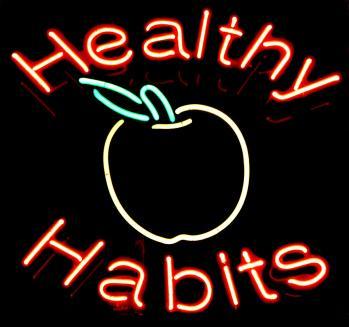 I’d like to start with a passage by my favorite Stoic philosopher Epictetus:
I’d like to start with a passage by my favorite Stoic philosopher Epictetus:
“Every habit and every faculty is confirmed and strengthened by the corresponding acts, the faculty of walking by walking, that of running by running. If you wish to have a faculty for reading, read; if for writing, write. When you have not read for thirty days on end, but have done something else, you will know what happens. So if you lie in bed for ten days, and then get up and try to take a fairly long walk, you will see how your legs lose their power. So generally if you wish to acquire a habit for anything, do the thing; if you do not wish to acquire the habit, abstain from doing it, and acquire the habit of doing something else instead.”
This may sounds like an overly simplistic approach to the forming and breaking of habits but it when it comes down to it there is no miracle to habits, it really is a matter doing or not doing something until the new regime it takes hold and becomes natural. What is very interested about this passage is the mention of “thirty days”. 30 days is the magic number when it comes to habits, keep something up for 30 days and it should stick, stop doing something for 30 days and the habit will drop away.
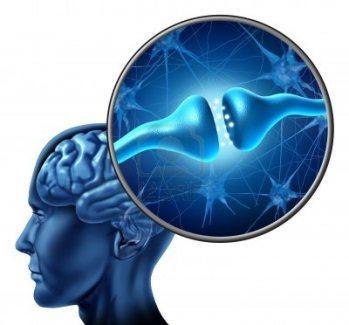
Your brain builds these synaptic pathways, or shortcuts, over time around your routine, and semi-automates much of your basic behavior so that you don’t have to think about it, and can instead focus on the more complex tasks in life. However when our behavioral patterns change suddenly, our brain does not. Those well worn synaptic pathways are still sending impulses that conform to the old way, this means that we have to use a significant amount of effort to counteract the (now irreverent) shortcuts and get on with our new routine. This is why it can be so tough to start something new, or stop something old. It’s just so much easier to give into those pesky, outmoded synapses and keep the old way going.
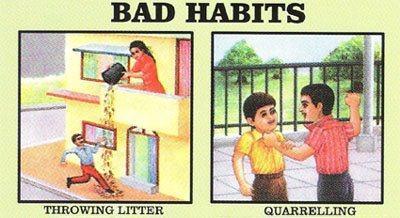
Yup, those are some bad habits.
But here’s the good news! From what I’ve read and from personal experience it only takes 3 to 4 weeks for the brain to adapt to a new system. As you stop feeding the old pathways by no longer following the impulses, they eventually lose their potency as energy is shifted to focus on the development of new pathways. If you stop responding to the impulse and use that energy for something else instead, new synaptic pathways will form in line with the new behavioral pattern. Do the same thing for a full 30 days and you will see the change, and it will no longer require such an effort on your part.
The problem with habits though is that oftentimes there is more to it than simple brain shortcuts. Often the reason we’ve developed the habit is in response to a difficult circumstance, bullying, high stress lifestyle, unresolved past trauma and so on. So although we can change the synaptic pathways through sheer willpower and giving it time, often an unwanted habit will simply return because the root cause is still there. Let’s look at some examples:
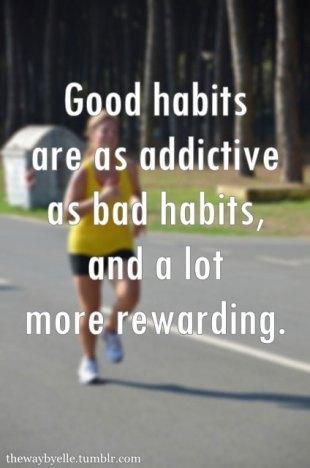
Cause: My partner and I fight all the time, smoking is the only thing that allows me to cope.
Solution: Deal with your relationship issues. Get some counseling together to sort things out or end the relationship.
Break the habit: Once your relationships troubles are over, and you are with supportive, decent people try 30 days without smoking in order to build new synaptic pathways.
Or.
Habit: Excessive drinking.
Cause: Unresolved childhood trauma. Drinking makes the pain go away.
Solution: Slowly heal your trauma through Somatic Experiencing and other useful techniques.
Break the habit: Once your trauma is resolved try 30 days without drinking in order to build new synaptic pathways.

lol
So as you can see there are often two parts to any “bad” habit. Of course we can all force our synapses to create new pathways, but often relapses will occur unless the underlying problem is resolved before hand. There are also very simple habits, maybe to do with small dietary changes, realistic exercise regimes, small changes to sleep patterns or time management that are usually not hindered by a greater, underlying issue. These can most often be changed simply by doing something new, or abstaining from something old for 30 days. Here are some tips on how to get through those 30 days with a simple habit, one that is not complicated by other issues.
* Baby Steps! Try to break the habit down into phases. In 2012 I wanted to quit smoking, give up milk, reduce my sugar intake, quit drinking coffee and try vegetarianism. Over about 6 months I achieved every one of those goals, bot not all at once! Take your time and break things down into smaller steps, give each one 30 days to complete.
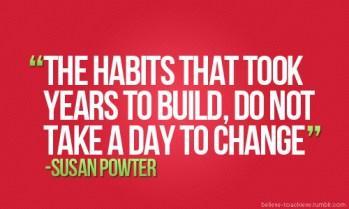
* Repeat Repeat Repeat! If you’re trying to break in a new habit repeat the new behavior as often and as regularly as you can. This will help speed up the formation of new pathways and get that brain used to the new way quicker.
* Replace! If you’re trying to quit something find a replacement. When you feel like engaging in the old habit make sure you have something new and more in line with the new way to replace it with. Just make sure it’s not worse, “Every time I want a smoke I’ll eat a pizza” is not a good idea for a replacement.
That’s how you knock a habit on the head! However as I said before it’s often not as simple as that. Below is a list of some of the most common underlying issues behind destructive or unhealthy habits, and some good ways to work on them:
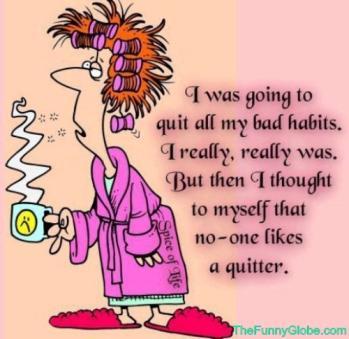
* Bullying > Identifying Bullying and Getting Away From Bullies.
* Past Trauma and PTSD > Somatic Experiencing and Focusing.
* Nervous Disorders and Panic Attacks > Claire Weekes’ great work on the subject.
* High Stress Lifestyle > Meditation and Visualization.
Good luck everyone out there trying to make or break a habit! Know that it is possible, no matter what, it’s simply a matter of healing or solving any unresolved problems and then sticking with it for 30 days. Have you every stopped or started a challenging habit? What worked well for you?
Thanks for reading, all the best

Rohan.
